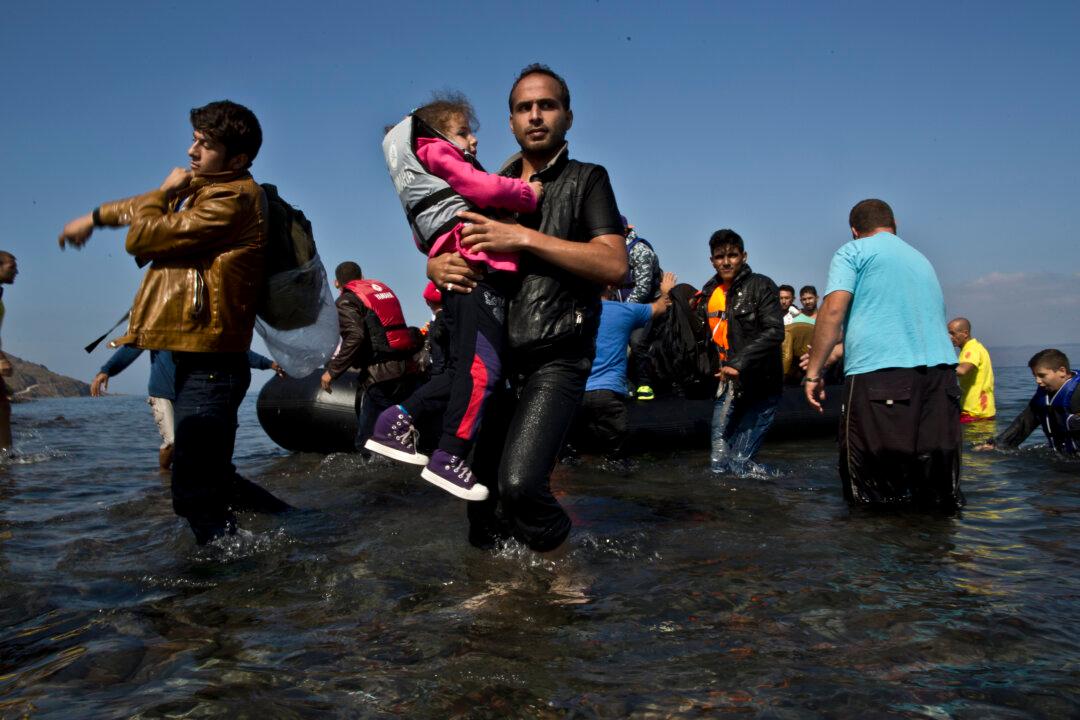ZAGREB, Croatia— One month after the body of 3-year-old Aylan Kurdi washed up on a Turkish beach — and a week after the European Union agreed to secure its borders — the migrant crisis has largely fallen off the front pages and reporters are going home.
But the human tide keeps rolling northward and westward, and aid agencies are preparing for it to continue through the winter, when temperatures along the migrant trail will drop below freezing. They fear the crisis may get worse.
“One thing is clear, the movement is not going to die down,” said Babar Baloch, the U.N. refugee agency’s representative in the Balkans. “What we are seeing right now ... it’s just the tip of the iceberg.”

A policeman watches migrants and refugees disembarking from a ferry after their arrival from the Greek island of Lesbos at the Athens' port of Piraeus, Sunday, Oct. 4, 2015. The U.N. refugee agency is reporting a "noticeable drop" this week in arrivals of refugees by sea into Greece _ as the total figure for the year nears the 400,000 mark. Overall, the UNHCR estimates 396,500 people have entered Greece via the Mediterranean this year with seventy percent of them are from war-torn Syria. AP Photo/Yorgos Karahalis





